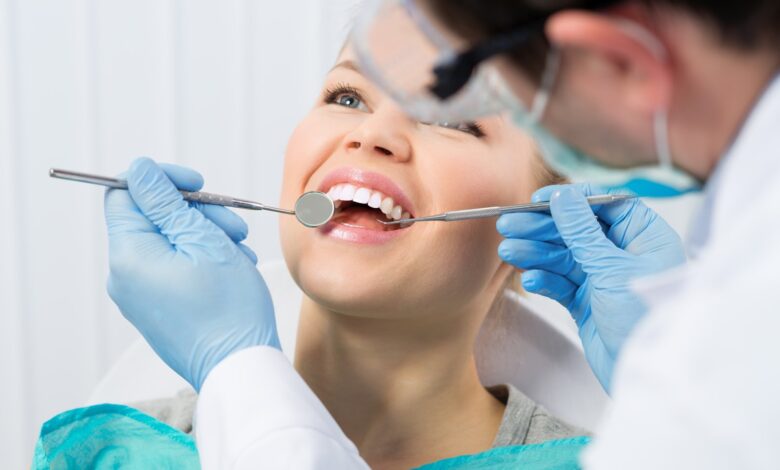The Importance of Dental Care for Seniors: Tips for Maintaining Oral Health

As we age, it is essential to pay extra attention to our oral health. Seniors are more prone to dental issues due to factors such as medication side effects, dry mouth, and natural wear and tear on teeth.
Maintaining good oral hygiene is crucial for overall health and well-being in older adults. In this article, we will explore the importance of dental care for seniors and provide tips on how to maintain oral health as you age.
1. Regular Dental Check-ups
One of the most important aspects of dental care for seniors is to schedule regular check-ups with a dentist.
As we age, our teeth and gums become more vulnerable to decay, gum disease, and other oral health issues. Regular dental visits can help detect problems early and prevent them from worsening.
Dental care for seniors is vital, ensuring oral health and overall well-being through specialized products and prompt treatment for dental concerns, ultimately promoting a confident smile in their golden years.
Dentists can also provide professional cleanings to remove plaque and tartar buildup that cannot be removed by regular brushing and flossing.
2. Proper Oral Hygiene
Seniors should continue to practice good oral hygiene habits, such as brushing twice a day and flossing regularly. Using a soft-bristled toothbrush and fluoride toothpaste can help prevent cavities and gum disease.
For those with arthritis or other dexterity issues, electric toothbrushes and floss holders can make oral care easier. It is also essential to replace toothbrushes every three to four months or sooner if the bristles are frayed.
Regular dental check-ups are crucial for seniors to maintain good oral health. Dentists can detect any issues early on and provide necessary treatments to prevent further complications. Seniors should also be mindful of their diet, limiting sugary and acidic foods and drinks that can contribute to tooth decay.
Overall, maintaining proper oral hygiene is key to preventing oral health problems and ensuring a healthy smile for years to come.
3. Stay Hydrated
Many seniors take medications that can cause dry mouth as a side effect. Saliva plays a crucial role in oral health by washing away food particles and neutralizing acids that can harm teeth.
To combat dry mouth, seniors should drink plenty of water throughout the day and chew sugar-free gum to stimulate saliva production. Avoiding caffeine and alcohol can also help prevent dehydration and dry mouth.
Additionally, using a humidifier in the bedroom at night can help keep the air moist and prevent further drying of the mouth.
Regular dental check-ups are also important for seniors to catch any oral health issues early on. If dry mouth persists, seniors should consult with their healthcare provider to explore other potential solutions or medications that may help alleviate this common side effect.
4. Maintain a Healthy Diet
A balanced diet rich in vitamins and minerals is essential for maintaining good oral health in seniors. Calcium and vitamin D are crucial for strong teeth and bones. Seniors should include dairy products, leafy greens, and fortified foods in their diet to support oral health.
Limiting sugary snacks and beverages can help prevent cavities and tooth decay. Eating crunchy fruits and vegetables can also help clean teeth naturally.
Additionally, staying hydrated is important for saliva production, which helps to wash away food particles and bacteria that can lead to dental issues.
Seniors should also visit their dentist regularly for check-ups and cleanings to maintain oral health and address any potential problems early on. By following these dietary and oral care tips, seniors can help ensure a healthy and happy smile for years to come.
5. Quit Smoking
Smoking not only increases the risk of lung cancer and heart disease but also significantly impacts oral health. Seniors who smoke are more likely to develop gum disease, tooth loss, and oral cancers.
Quitting smoking can improve overall oral health and reduce the risk of dental problems. Dentists can provide resources and support to help seniors quit smoking and maintain a healthy smile.
Smoking not only increases the risk of lung cancer and heart disease but also significantly impacts oral health. Seniors who smoke are more likely to develop gum disease, tooth loss, and oral cancers. Quitting smoking can improve overall oral health and reduce the risk of dental problems.
Dentists can provide resources and support to help seniors quit smoking and maintain a healthy smile.
6. Address Dental Issues Promptly
If seniors experience any dental pain, sensitivity, or changes in their oral health, it is essential to seek prompt treatment from a dentist. Ignoring dental issues can lead to more significant problems and discomfort.
Dentists can provide solutions for toothaches, gum inflammation, missing teeth, and other concerns that may arise with age. Early intervention can help preserve oral health and prevent complications.
Seniors should not ignore dental pain, sensitivity, or any changes in their oral health. Seeking prompt treatment from a dentist is essential to prevent more significant problems and discomfort.
Dentists can offer solutions for toothaches, gum inflammation, missing teeth, and other age-related concerns. Early intervention is key to preserving oral health and avoiding complications.
Conclusion
Overall, dental care is crucial for seniors to maintain good oral health and quality of life. By following these tips and prioritizing oral hygiene, older adults can enjoy a healthy smile and avoid common dental problems associated with aging. Regular dental check-ups, proper oral hygiene, staying hydrated, maintaining a healthy diet, quitting smoking, and addressing dental issues promptly are key components of dental care for seniors. Taking care of your teeth and gums can contribute to a happy and healthy life in your golden years.



